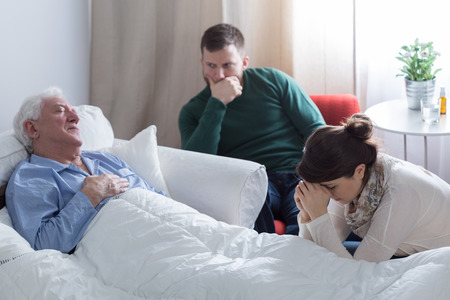I didn’t know what to do. The location of the young woman’s pain was consistent with appendicitis, but the level of pain wasn’t. The classic exam findings of marked tenderness, worse when pressure rapidly removed, and a firm abdomen, were absent. Her blood work was normal, and she didn’t have a fever. I did not think I could justify taking her to the operating room, but I wasn’t comfortable sending her home either. I had only been a doctor for a few months, so I did not have much experience to draw on.
It was 1990 and the medical profession hadn’t yet figured out the value of CAT scans and ultrasounds for diagnosing appendicitis so all I had to go on was my head and my hands. I felt badly that the patient had me for her doctor and worried that I would make the wrong diagnosis. I remembered that the symptoms of appendicitis typically increased over time so I admitted her to the hospital with the plan of checking her every few hours. I figured that the pain would either get better or get worse, and that time would prove to be the best diagnostic tool. I was confident that the answer would come within a few hours. It didn’t.
Six hours later nothing had changed. She still had pain and tenderness over the appendix, and nothing else. I knew enough to worry but did not feel like I knew enough to make a decision. I nervously decided to call the surgeon on call and ask him for advice. He was the Chief of Staff for the hospital and had a reputation for being a no-nonsense jerk with a tendency to yell at stupid interns, but he was the man who would be doing the surgery if surgery was needed. I was afraid he would be bothered by my call, but it was 11 PM and I was pretty sure his mood would only get worse the longer I waited, so I called his answering service.
He returned my page within minutes. In typical intern fashion I launched into a detailed explanation of the patient’s history and physical examination. I had barely begun my story when he interrupted me. “Do you want to take her to the operating room or not?” he demanded. Taken aback, I attempted to explain to him my uncertainty. He wanted nothing to do with my lack of confidence.
“You’re the doctor, I’m the consultant. Be a doctor. Make the call. You say the word and I’ll do the surgery. If you don’t want to do the surgery then hang up the phone and let me go back to sleep. Make the call.”
His words were like a punch in the stomach. It was time for me to “grow up” and be a doctor. The fact that the evidence wasn’t clear was irrelevant. A decision had to be made and it was up to me to make it, right then and there.
I made up my mind as I spoke my reply, “If it was my wife, I would want her in the operating room.”
“I’ll call the OR,” he answered.
A little over 30 minutes later I was standing across from the surgeon as he made the incision in her abdomen. I watched as he reached in with his gloved handed and gently worked to bring the appendix into view. It was not in its most common position. It was swollen and infected but it was tucked behind the cecum in such a way that the cecum blunted the pressure of examining fingers. It would have ruptured before the diagnosis became clear. Waiting would have brought harm.
As he prepared to remove the appendix the surgeon looked up at me. From behind his mask he said, “You made a good call.”
I have never forgotten his words, for they have meaning beyond medicine. I learned a life lesson that night. Sometimes there is no one to turn to but yourself. We can’t always wait for things to be clear. Sometimes being a grown up is about making the best decision we can in the moment and learning accepting the consequences.
- Bart
.




